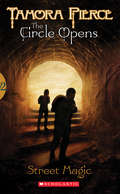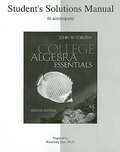- Table View
- List View
Stray (Stray Ser. #1)
by Monica HessePerfect for fans of Black Mirror and Warcross, this suspenseful novel asks what it means to live a life that isn't your own. Lona Sixteen Always has spent most of her life as someone else. Part of a unique virtual reality experiment for troubled kids who have been "rescued" by the government, she spends twenty-three hours a day on the Path, reliving the decades-old, perfectly ordinary memories of a perfectly ordinary boy. Any other life is unimaginable--until one day someone appears on Lona's screen who doesn't belong. Fenn, a boy from her past, has returned to set her free. Lona is wrenched brutally into an existence that is suddenly all her own, one that promises liberty and love, but also holds threatening secrets. And it turns out that there is a heavy price to pay for straying from her assigned path. In Stray, Edgar-award winning master of suspense Monica Hesse brings us a richly imagined speculative world where there are no easy answers--and no easy way out. *This ebook includes bonus excerpts from Monica Hesse's historical fiction novels Girl in the Blue Coat and The War Outside.
Street Law: A Course in Practical Law (Sixth Edition)
by Lee P. Arbetman Edward L. O'BrienThe sixth edition of Street Law: A Course in Practical Law provides new information, practical advice, and competency-building activities designed to provide students with the ability to analyze, evaluate, and, in some situations, resolve legal disputes.
Street Magic: Street Magic - Reissue (The Circle Opens #2)
by Tamora PiercePart of the 8-book Tamora Pierce reissue for Fall 2006, this title in the Circle Opens quartet features spellbinding new cover art. Coincides with the release of WILL OF THE EMPRESS in trade pb.Briar Moss been training four years as a plant mage, but he hasn't put his past behind him. He meets a street girl, Evvy, using powerful magic to polish stones for a merchant, and resolves to find her a teacher. But Briar understands the city's gangs as well as he understands Evvy. When gang warfare breaks out, he discovers that the fiercest gang is seeking a stone mage to lead them to hidden gems. Only Briar and his magic can offer Evvy protection. Swept up in a bloody conflict, Briar must decide if he's ready to make the final step away from his former life as a "street rat".
Streetlight People
by Charlene ThomasA little bit Twin Peaks, a little bit Black Mirror, Streetlight People is a story of growing up in—and out of—a small town with a huge secret.For most, Streetlight is a dot on the map you pass on your way to somewhere else. But if you live there, you&’re either a Have-Not, like Kady, or a Have-Lot like her boyfriend, Nik, who also happens to be a member of the exclusive social club, The IV Boys.Known for their powerful families and the coveted ball they host for a selective guest list, The IV Boys have always refused to accept Kady regardless of how much Nik loves her. All the Boys except for Aaron, who didn&’t grow up in Streetlight and is one of the few who knows that life—real life—exists outside of it. But his stepmom has the kind of wealth and power even IV Boys can&’t resist.With Nik at college, Aaron stands by Kady&’s side. But all Kady really wants is Nik, and when a chance encounter on Halloween hands her the power to twist and hold time, she doesn&’t hesitate. Now she can keep Nik close for as long as she wants. While Kady tries to relive her best moments with Nik, the IV Boys have her in their sights. A rumor&’s spreading that Kady and Aaron are much more than friends—and not even twisting time is enough to defend against the power that the Boys were born with.The more Kady changes the clock, the more dizzying reality becomes, until she stumbles upon a truth darker than anything she could have imagined. Streetlight is filled with monsters—and maybe she&’s always been one, too.
Strings Attached (Playaway Young Adult)
by Judy BlundellFrom National Book Award winner Judy Blundell, the tale of a sixteen-year-old girl caught in a mix of love, mystery, Broadway glamour, and Mob retribution in 1950 New York.When Kit Corrigan arrives in New York City, she doesn't have much. She's fled from her family in Providence, Rhode Island, and she's broken off her tempestuous relationship with a boy named Billy, who's enlisted in the army. The city doesn't exactly welcome her with open arms. She gets a bit part as a chorus girl in a Broadway show, but she knows that's not going to last very long. She needs help--and then it comes, from an unexpected source.
Stripping Bare the Body: Politics Violence War
by Mark DannerFor the past two decades, Mark Danner has reported from Latin America, Haiti, the Balkans, and the Middle East. His perceptive, award-winning dispatches have not only explored the real consequences of American engagement with the world, but also the relationship between political violence and power. In Stripping Bare the Body, Danner brings together his best reporting from the world’s most troubled regions-from the fall of the Duvalier dictatorship in Haiti to the tumultuous rise of Aristide; from the onset of the Balkan Wars to the painful fragmentation of Yugoslavia; and finally to the disastrous invasion of Iraq and the radical, destructive legacy of the Bush administration. At a time when American imperial power is in decline, there has never been a more compelling moment to read these urgent, fiercely intelligent reports.
Struck: Stupid Cupid; Flirting with Disaster; Pucker Up
by Rhonda StapletonFelicity Walker believes in true love. That’s why she applies for a gig at the matchmaking company Cupid’s Hollow. But when Felicity gets the job, she learns that she isn’t just a matchmaker...she’s a cupid! (There’s more than one of them, you know.) Armed with a hot pink, tricked-out PDA infused with the latest in cupid magic (love arrows shot through email), Felicity works to meet her quota of successful matches. But the path to love is not always a straight shot.... Laugh-out-loud funny and irresistibly romantic, this delightful bind-up is ideal for fans of both romantic comedies and paranormal romance.
Structural Anthropology
by Claude Levi-StraussThe "structural method," first set forth in this epoch-making book, changed the very face of social anthropology. This reissue of a classic will reintroduce readers to Lévi-Strauss's understanding of man and society in terms of individuals--kinship, social organization, religion, mythology, and art.
Structural Geology
by Haakon FossenLavishly illustrated in color, this textbook takes an applied approach to introduce undergraduate students to the basic principles of structural geology. The book provides unique links to industry applications in the upper crust, including petroleum and groundwater geology, which highlight the importance of structural geology in exploration and exploitation of petroleum and water resources. Topics range from faults and fractures forming near the surface to shear zones and folds of the deep crust. Students are engaged through examples and parallels drawn from practical everyday situations, enabling them to connect theory with practice. Containing numerous end-of-chapter problems, e-learning modules, and with stunning field photos and illustrations, this book provides the ultimate learning experience for all students of structural geology.
Stuart England (2nd edition)
by J. P. KenyonStuart England is the subject of continual and active research, and Professor Kenyon's survey presents a unified picture of this contentious century, as well as featuring a full and up-to-date critical bibliography.
Student Grammar of Spoken and Written English
by Geoffrey Leech Douglas Biber Susan ConradExamines patterns of use in the news, fiction and academic English Takes grammar and vocabulary together and looks at how they interact Is based on the analysis of 40-million words of British and American, written and spoken corpus text Uses over 3000 examples of real, corpus English to illustrate the points Uses frequency tables and graphs to make the new findings of this grammar clear
Student Manual for Understanding Generalist Practice (5th edition)
by Karen K. Kirst-Ashman Grafton H. Hull Vicki VogelThe Student Manual contains detailed outlines of each chapter and is filled with classroom exercises and assignments.
Student Solutions Manual For Chemistry: A Molecular Approach
by Nivaldo J. Tro Kathy Thrush Shaginaw Mary Beth KramerThe selected solution manual for students contains complete, step-by-step solutions to selected odd-numbered end-of-chapter problems.
Student Solutions Manual Trigonometry: A Unit Circle Approach 9th Edition
by Michael SullivanThis Trigonometry Solutions Manual provides fully worked solutions to odd-numbered exercises.
Student Solutions Manual for College Algebra 8
by Michael Sullivan Kevin Bodden Randy GallaherA printed manual containing full solutions to odd-numbered exercises from College Algebra 8.
Student Solutions Manual to Accompany Health Economics
by Frank A. Sloan Chee-Ruey HsiehThis student solutions manual for Health Economics provides answers to the odd-numbered exercises.
Student Solutions Manual: Single Variable
by Maurice D. Weir Frank R. Giordano Joel Hass George B. ThomasThis manual contains completely worked-out solutions for all the odd-numbered exercises in the text, covering Chapters 1 11.
Student Solutions Manual:Elementary Linear Algebra, Seventh Edition
by Ron LarsonThis Student Solutions Manual can be used as a supplement to Elementary Linear Algebra, Seventh Edition, by Ron Larson. All references to chapters, theorems, and exercises relate to the main text. Solutions to every odd-numbered exercise in the text are given with all essential algebraic steps included.
Student Success in College: Doing What Works!
by Christine HarringtonThis book offers an accessible and relevant way for students to move beyond opinions and advice about how to succeed in college by offering an integrated approach of researched back student success practices paired with student success research studies.
Student's Guide to Writing College Papers (4th edition)
by Joseph M. Williams Kate L. Turabian Gregory G. ColombThis new edition is both a solid introduction to the research process and a convenient handbook to the best practices of writing college papers.
Study Guide for Gould's Pathophysiology for the Health Professions (Fifth Edition)
by Karin C. Vanmeter Robert J. HubertThe book is on the background and overview of Pathophysiology,and related topics like defence and protective mechanisms,factors contributing to Pathophysiology etc.
Study Guide for Kinn's the Administrative Medical Assistant: An Applied Learning Approach (Seventh Edition)
by Alexandra Patricia Young-AdamsThis study guide offers a complete review of content and a wide range of exercises to help you master CAAHEP and ABHES competencies.
Study Guide for Medical-Surgical Nursing: Assessment and Management of Clinical Problems, Ninth Edition "
by Sharon L. Lewis Shannon Ruff Dirksen Linda Bucher Margaret Mclean Heitkemper Susan A. SandstromPrepare for success in the classroom! Corresponding to the chapters in the 9th edition of Lewis' market-leading Medical-Surgical Nursing, this study guide offers a complete review of content and a wide range of activities to help you understand key nursing concepts. Alternate item format questions reflect the most current NCLEX test plan. To make studying easier, answers for all exercises are included in the back of the book.
Study Guide for Memmler's The Human Body in Health and Disease
by Barbara Janson Cohen Kerry L. HullThe Study Guide for Memmler's The Human Body in Health and Disease, 12th edition, helps students learn foundational concepts in anatomy and physiology required for success in allied health occupations. It will be more effective when used in conjunction with the 12th edition of Memmler's The Human Body in Health and Disease. The Study Guide may also be used to supplement other textbooks on basic anatomy and physiology.
























